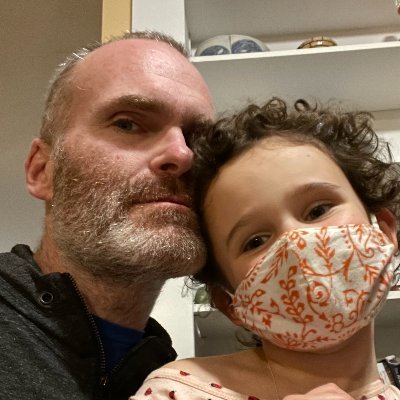
Katie Vasquez
@KTVasq
Followers
360
Following
2K
Media
49
Statuses
327
PhD candidate @UChicago 🧠 Former Lab Manager @Yale Learning how children learn to impress each other. NJ bagels are the best bagels. 🌈 She/her
Chicago, IL
Joined July 2019
Come check out the UChicago Social Kids Lab (PIs @K_Kinzler and Alex Shaw) at #SRCD2025. Amazing work by @Kscottcharles, @RachelAnnKing, @ajmackiel and others who are not on here to tag.
1
1
11
My symposium will explore children's understanding of social hierarchy. How do children think status is earned? What does it mean to be high status? When should power be transferred? Speakers include @aashnapod, @kmcaulif1 and Mack Briscoe. Come this Saturday!
0
0
6
It was great presenting some of my research in adults with Alex Shaw at @socphilpsych #SPP2024! This work extends current theories on friendships, suggesting we track not only benefit delivery, but also willingness to ask others to incur costs. Here's what we found... 1/5
1
5
13
Members of the Social Kids Lab (PIs @K_Kinzler and Alex Shaw) will be presenting at CDS! Come check out our work! @RachelAnnKing @ajmackiel @JessicaWaltmon and many more who are not on Twitter!
1
5
13
We are hiring a full-time lab manager to study social cognition @UChicago! Ideal for highly motivated students planning to pursue a PhD in dev psych, social psych or related fields. Please share this info to anyone who might be interested. Apply here: https://t.co/SvDHwSlvBa
0
48
58
My lab is recruiting undergraduates for a *funded* summer internship for June & July to assist with projects in social cognitive development! Details at
socialcogdev.com
0
89
115
This is my first paper with my graduate advisor, Alex Shaw! I would like to thank my co-authors, lab alumni, Hannah Hok and Anam Barakzai for including me on this paper. Link to postprint here: https://t.co/szSBjTarPZ
0
0
2
In our paper, we explore both social and physical conflicts. In (very) short, we find that older children specifically and reliably generalized dominance, not submissiveness. We discuss many reasons why this might be the case in the paper!
1
0
2
Children use many cues to determine who is dominant. But from these studies, which mostly rely on one dyad or two groups, it is hard to say if children think that dominants are dominant, subordinates are subordinate, or if they only have their rank in relation to each other.
1
0
0
Now in press at Developmental Psychology, we probe the depth of children’s inferences about dominance and submissiveness. Children were asked to rank a previously dominant and subordinate agent compared to a previously uninvolved agent.
1
0
0
New postprint! If Gretchen Wieners tells Regina George, “You can’t sit with us,” children know Gretchen is now dominant and Regina is now subordinate. But how do Gretchen and Regina rank relative to Cady Heron, who was uninvolved in this conflict?
1
1
6
Work was lead by the incredible @rodneytompkins_ and I had a great time collaborating with @emg3r, @yarrowdunham, @zoeliberman!
0
0
2
Read more here! A free PDF is also uploaded to my personal website (link in bio)
psycnet.apa.org
Across two preregistered studies with children (3–12-year-olds; N = 356) and adults (N = 262) from the United States, we find robust expectations for intergroup empathic biases. Participants predic...
1
0
0
Why study reasoning about third parties? Such third-party studies allow researchers to investigate people's naïve expectations, without concerns about self-presentation.
1
0
0
By preschool, people expect third-parties to feel better about ingroup than outgroup fortunes and worse about ingroup than outgroup misfortunes. When two groups dislike one another, people’s predictions of empathic bias are stronger.
1
0
1
Empathy is so biased that even young kids recognize it, and it especially helps when we spell it out for them!
1
2
17
In the current climate, many wonder whether "staying out" of political issues - remaining neutral - makes them seem like a bad person. Last year, Alex Shaw and I put out a paper looking into this question. A few takeaways you may find interesting... https://t.co/zj25vkLBq5
psycnet.apa.org
People care where others around them stand on contentious moral and political issues. Yet when faced with the prospect of taking sides and the possibility of alienating observers with whom they might...
2
7
33
"The #development and predictors of a preference for strivers over naturals in the United States and China," by @XinYang_Kate and @yarrowdunham from @Yale, @XinZhao1 (@ECNUER), and @LinBian_ (@UChicago) in #ChildDevelopment Journal (2023):
srcd.onlinelibrary.wiley.com
Across three pre-registered studies (n = 221 4–9-year olds, 51% female; 218 parents, 80% female; working- and middle-class backgrounds; data collected during 2019–2021) conducted in the United...
0
3
5
We are happy to share our new commentary on why using language inclusively for transgender people is perfectly appropriate biologically, socially, and scientifically. Here is a 🧵 on this new commentary by @AndyPerfors, @celestekidd, and myself. https://t.co/8ZpB4vUSVo
3
151
444









